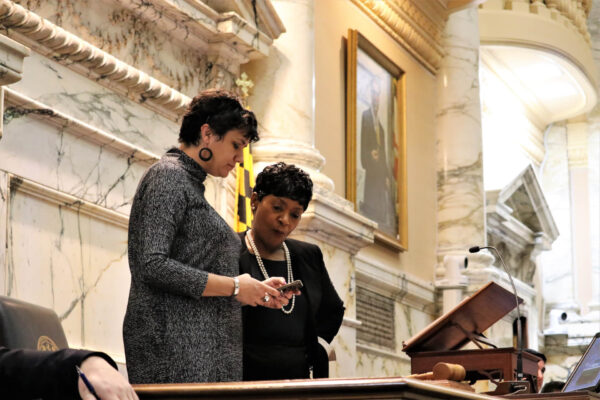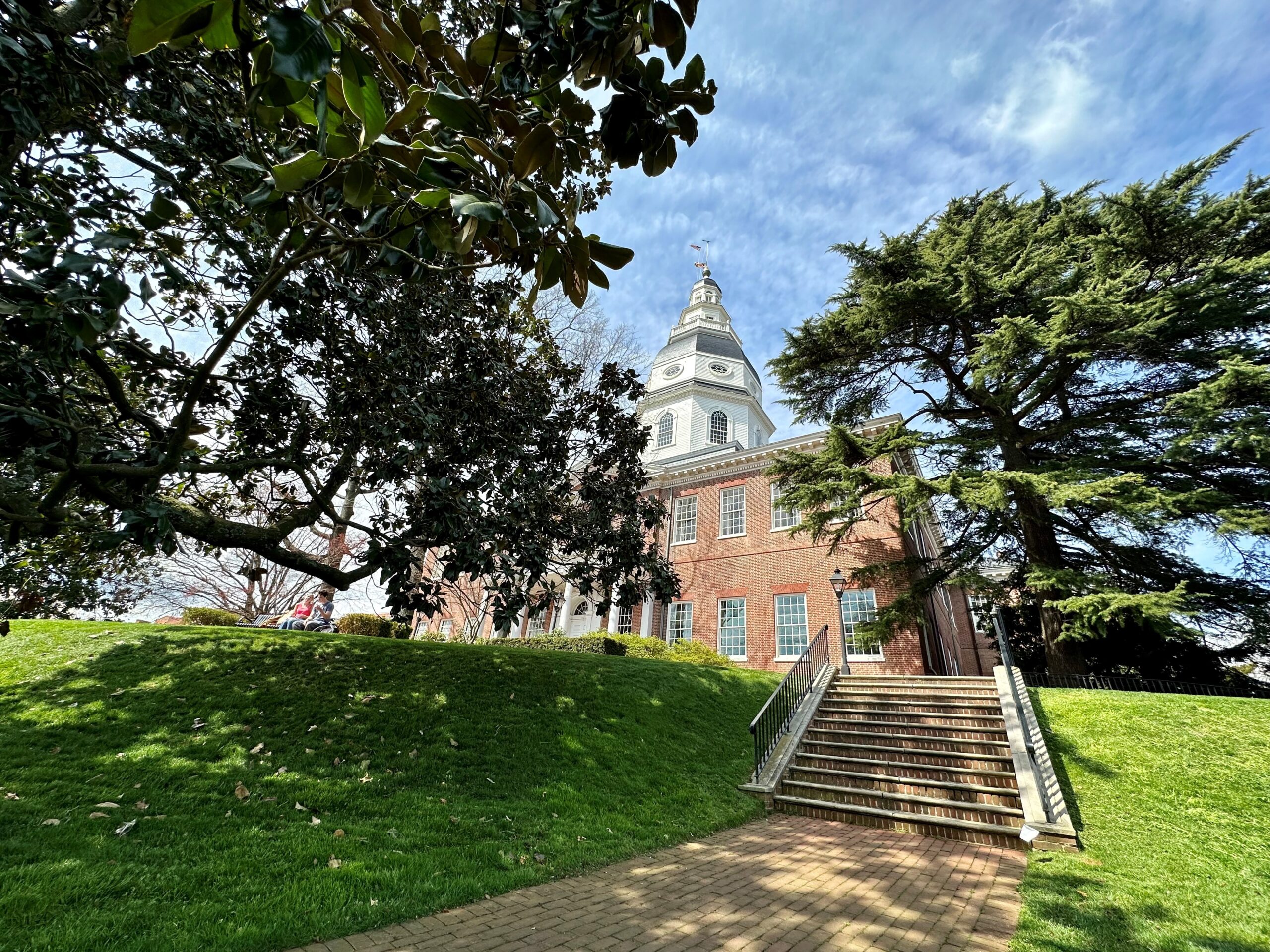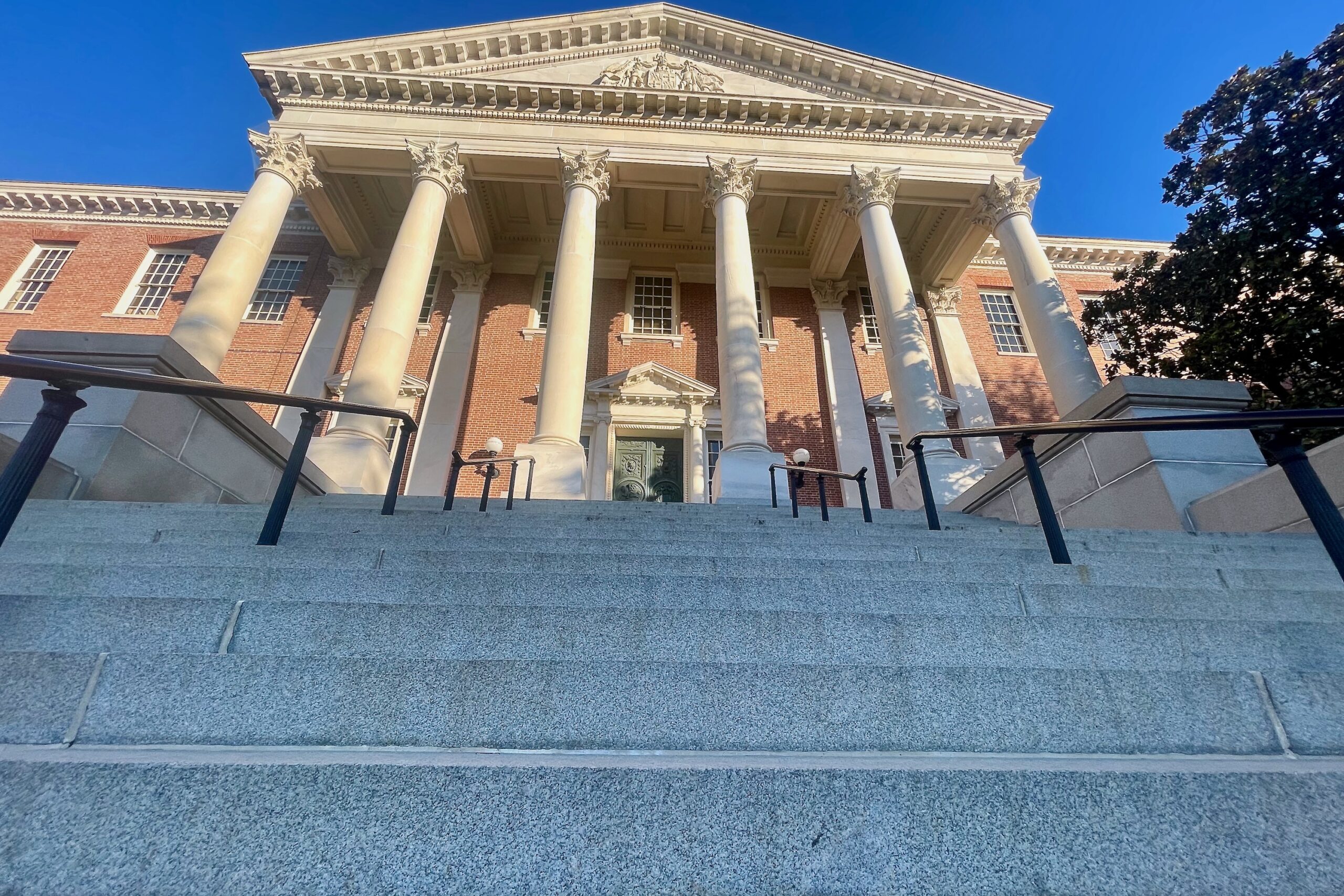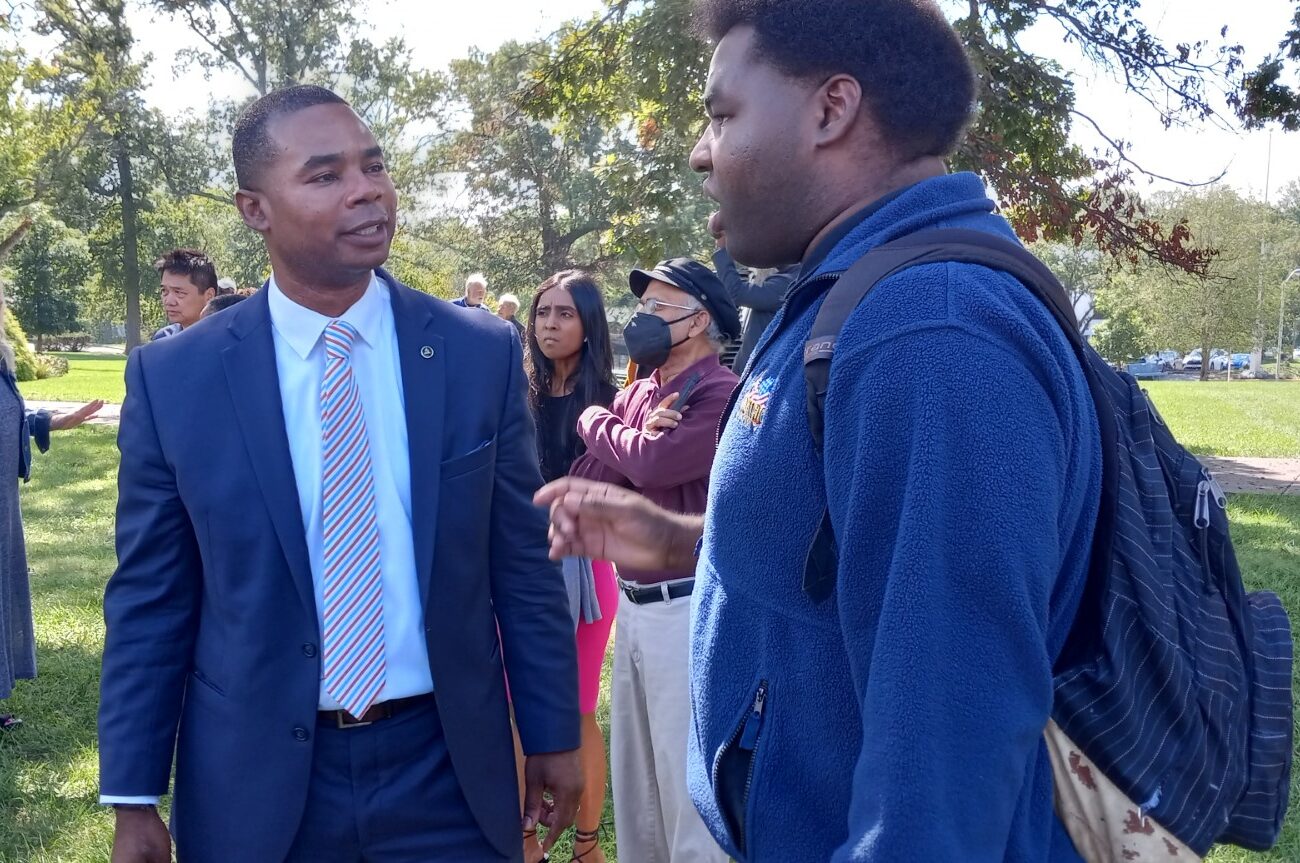A Growing Trend: More Black Women Among Annapolis Lobbying Corps

When Lisa Harris Jones started lobbying in Annapolis in the late 1990s, she was almost always one of the few Black women in a room and sometimes the only. She recalled just a few female faces, mostly white, at the capital working to influence state policy, but she was usually surrounded by white male lawmakers and lobbyists.
“I have no memory of a Black female in a partnership position,” she said.
As the first Black woman to own and manage a law practice focused on lobbying and government relations, Harris Jones is known as a “trailblazer” in Annapolis, inspiring other Black women to enter the field and helping open doors.
But it did not come without condescension from the “old boys club” at the time, Harris Jones said. When she was thinking of opening her own law practice, a white male lobbyist laughed at the idea, she said.
“It actually put the fire in me to go out on my own and start my practice,” Harris Jones said. In May 2000, she founded Jones & Malone LLC. But it took a long time to overcome another hurdle: to be taken seriously by legislators and clients and to break the presumption that she only did “Black work.”
Many assumed Harris Jones worked for Baltimore or Prince George’s County or associated her with exclusively talking with Black legislators. And not everyone believed her when she said she owned her own practice.
“I was a woman, I was young, and I was black — [people thought] there was no possible way I could have my own practice and have my own clients,” she said.
White male lobbyists would try to intimidate her outside of bill hearings and sometimes even yell. And one time, Harris Jones was invited to a meeting where her white male client was allowed in but the door was shut in her face. When she tried to go inside, a man came out and blew cigar smoke into her face.
“It took years to shed that,” she said.
Now, Harris Jones said she believes that people choose her firm because they understand she is a smart, hard-working lawyer who deeply understands how the Maryland General Assembly works. “I can represent clients, whether they are Black, white, purple or green.”
Those in professional fields in Annapolis historically dominated by white men say that the pressure to be prepared is high, with more people looking at them to fail than to succeed.
And to succeed in Annapolis, one also needs a lot of strong relationships.

House Speaker Adrienne A. Jones (D-Baltimore County) confers with her chief of staff, Alexandra M. Hughes in 2020. File photo by Danielle E. Gaines.
The superstructure in Annapolis has relied on a core group of people for so long that it has been hard to break in, said Alexandra Hughes, the first Black chief of staff for any House speaker in Annapolis, who served the late Michael Busch (D-Anne Arundel) and Adrienne A. Jones (D-Baltimore City). Hughes now owns her own public relations firm in Annapolis.
“I think, once there’s a first, it sort of becomes more routinized,” Hughes said. “All these things take somebody to be their champion and their advocate.”
For instance, Hughes said, Busch picked Jones to be speaker pro tempore for the entirety of his tenure and chose Dereck Davis to be the chair of the Economic Matters Committee. When Senate President Bill Ferguson (D-Baltimore City) chose Sally Robb to be his chief of staff, she became the first Black woman to serve as the top staffer for a Maryland Senate president.
But being the first is not easy. Harris Jones said she had to “work double and harder” than her white counterparts because, as she heard, some people assumed that she was not “as smart.”
The changing face of the legislature and more Black lawmakers in positions of power who opened opportunities to different people “made the broader Annapolis superstructure pay attention,” Hughes said. Companies and the lobbying world started to realize that they needed to change with the legislature, she continued.
Pushing the envelope
After efforts to move away from an old boys network, there is now a bigger pool of talented professionals in Annapolis who can succeed and continue to push the envelope, Hughes said.
One such person is Pokuaa Owusu-Acheaw, the political and legislative affairs director of the Maryland State Education Association, arguably one of the most powerful labor unions in the state.
“Because the Black women lobbying world in Annapolis is so small, we look out for one another — it is almost like a sisterhood,” she said. “There’s a lot of pressure when you stand out in a room” and people are “willing to immediately jump in and ready to critique,” she continued. “Even the way we style our hair is politicized.”
Owusu-Acheaw, a lawyer who grew up in Prince George’s County, previously worked as an intergovernmental affairs officer for Prince George’s County Executive Angela D. Alsobrooks (D) and served as Prince George’s County regional director for U.S. Sen. Chris Van Hollen (D-Md.). She began working in Annapolis in 2015 as an intern and later chief of staff to state Sen. Joanne C. Benson (D-Prince George’s).
Owusu-Acheaw highlighted the increasing diversity among legislative staff as critical to growing the bench of Black female lobbyists because staff positions often serve as a funnel into lobbying.
“You don’t have access and opportunity to be seen and be known for your talents if people don’t interact with you,” she said.
She pointed to former Sen. Joan Carter Conway (D-Baltimore City) as someone who helped pave the way for a lot of Black lobbyists by bringing them into rooms where their white colleagues automatically got entrance.
The growing number of people of color “is a tremendous testament to how Annapolis is starting to address a lack of diversity that’s been in existence for a long time,” said Tiffany Harvey, vice president for state government affairs at Comcast, who earlier worked on government affairs at Verizon.
Harvey also was legislative affairs director for Alsobrooks and spent almost four years holding civil rights and legislative affairs jobs under Attorney General Brian E. Frosh (D) starting in 2015.
She said there had always been talent among Black women, but the doors just were not open in the same way they are starting to open now.
Harvey said that she has never felt like her race or gender was a hindrance in conversations with lawmakers. She credited that to the change in leadership within the General Assembly as well as the foundation that earlier Black lobbyists in Annapolis have laid.
“Diverse people long since should have been included because we are more than capable of participating in the Annapolis ecosystem in a strong and effective way,” Harvey said. “The value that we add is beyond our race and gender. Something’s missing when there is no diversity in the room.”
The lobbying corps in Annapolis will have to continue keeping pace with changing demographics of the legislature, which saw a dramatic increase in the number of women and people of color in 2015, said Maria Harris Tildon, vice president for government and community affairs for Johns Hopkins University.
Before taking the job with Johns Hopkins, Tildon worked for CareFirst BlueCross BlueShield, the largest health insurer in the Mid-Atlantic region, as executive vice president for public policy and government affairs for 15 years. She is the older sister of Lisa Harris Jones.
“I think there is a significant corps of really talented African American women who have pretty significant lobbying portfolios, and when you have a core group of talent and experts, that really begets more,” Tildon said. With more people to look up to, more young aspiring lawyers and policy analysts of color can believe that this is a profession they can not only also pursue but be successful in, she said.
The work ahead
However, there is still more work to be done. The list of the top lobbyists in Annapolis only includes one Black person, and that is Lisa Harris Jones, Hughes noted.
It can be a challenge to reach young women of color and show that lobbying is a career that they also could pursue, but Harris Jones is intentional about it. When she gets calls from young women in law school or working in a legislator’s office, “I always take their calls and I always do that meeting,” Harris Jones said. And her firm does not turn down opportunities if a young person of color wants to intern for them, she continued.
Owusu-Acheaw said it is critical for elected officials also to be intentional about hiring a diverse staff, as staff are often who they interact with first when they visit legislative offices and “people hire people they know or are familiar with.”
After Dytonia “Dy” Reed graduated from Columbia University, her mind was set on becoming an attorney and she went on to University of Baltimore School of Law. In her free time, however, she volunteered for campaigns and got involved in political organizations, where she met female lobbyists and began to consider the work they do.
In 2011, Reed became the government relations specialist at the Maryland Department of Human Services, “and that’s when my world opened up,” she said.
Reed met Jeanette Ortiz and Allyson Black, who invited her to join them in Annapolis to monitor hearings and interact with lawmakers on a professional level.
“If it wasn’t for those two women, I don’t think that I would have been exposed to the career field and be where I am today,” she said.
Reed recalled that she told Black that she wanted to meet Harris Jones. A couple of days later, Reed and Black were out to get some lunch and “in she walks,” Reed said. “At that point, I was a little starstruck because I didn’t think I would ever meet Lisa Harris Jones.”
That was the day Reed resolved that she was going to be a lobbyist. She served as assistant director of government relations for the Maryland Insurance Administration and now is state government affairs manager for Washington Gas.
After getting inspired by other women in the field, Reed said she works harder to ensure that this career is possible for the next generation of Black women.
“In order for women to continue to grow and have opportunities, we have to be at the top of our game,” she said. “I feel like I’m creating doors for them, and I don’t want an opportunity to be taken away because I haven’t shown myself to be of high integrity.”
When there is “an expectation of greatness,” it helps open the door for other Black women because it shows others that “really good people have done this before,” Harvey said.




 Creative Commons Attribution
Creative Commons Attribution